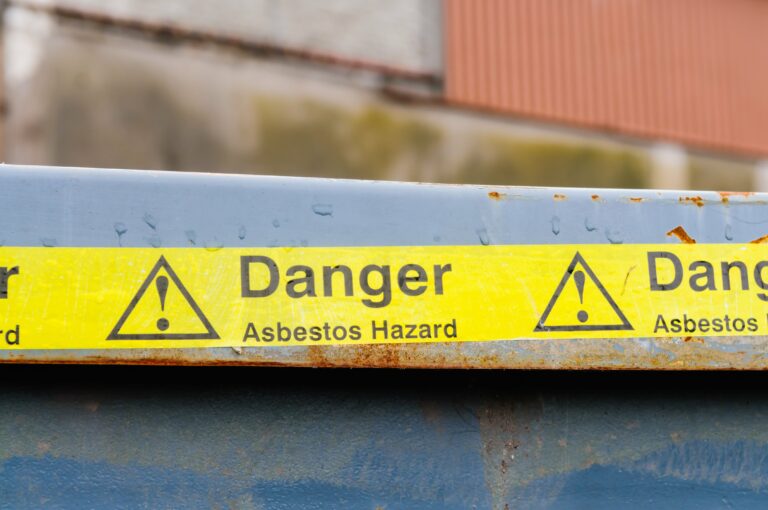BLOG
Can clinically extremely vulnerable people go to work during lockdown? | The latest
The advice regarding those most at risk from coronavirus (COVID-19) has changed a number of times since March 2020, leading to some confusion around whether it’s permitted, and safe, for them to attend the workplace.
These individuals will be amongst the first to receive the vaccine, with the government aiming to have vaccinated all 1.2 million clinically extremely vulnerable (CEV) people (under 70) by 15 February. But in the meantime, it’s important for employers to understand why certain people fall into this high-risk category and what steps they must take to ensure their safety.
What does it mean to be ‘clinically extremely vulnerable’?
As defined by Public Health England, clinically extremely vulnerable people are those at very high risk of severe illness from COVID-19.
The government has stated that there are two ways you may be identified as clinically extremely vulnerable. Either:
- You have one or more of conditions listed on the GOV.UK website (these include cancer, severe respiratory conditions and certain rare diseases that significantly increase the risk of infections); or
- Your clinician or GP has added you to the Shielded Patient List because, based on their clinical judgement, they deem to you be at higher risk of serious illness if you catch the virus.
How has the advice changed since March 2020?
When the first wave of the pandemic took hold in March, people who fell into this category were asked to shield – in other words, not leave their home and minimise all face-to-face contact.
As the infection rate declined, restrictions were relaxed, and the guidance given to those individuals changed; they no longer needed to shield. They were able to return to certain working environments, provided strict control measures were put in place to reduce their chances of coming into contact with COVID-19.
Fast forward to Autumn, and with the infection rate increasing, the position changed again. The government reverted back to encouraging all employees, including CEV people, to stay at home as much as possible. This was advisory and, legally speaking, CEV individuals could still work safely in some working environments.
Free Download: Vulnerable Persons Risk Assessment Template
Our Health & Safety specialists have devised a specific vulnerable persons risk assessment to help employers assess their workplace and ensure adequate control measures are implemented to keep employees safe.
What about now? Can clinically extremely vulnerable people go to work?
We began 2021 with a third national lockdown, following the news of a new variant of the virus back in December. Thought to be around 50% more infectious, the likelihood of encountering the virus has increased significantly. This new strain is not, however, thought to be deadlier or cause more severe illness.
Towards the end of last year, the tier system meant that the likelihood of encountering the virus differed from area to area. Now, however, we are in the midst of a national lockdown and have a highly-infectious strain to contend with. As such, the government is currently advising that those classed as clinically extremely vulnerable stay at home and shield once more.

From a workplace health and safety perspective, therefore, it’s important to remember that CEV people are at very serious risk if they encounter the virus, and that as an employer, you have a duty of care to eliminate or minimise this risk.
The only real way to eliminate the risk of an employee contracting the virus from work is to have them work from home, and employers should make a concerted effort to explore this as a first option. Of course, this may simply not be viable, in which case options include SSP and possibly furlough, though we recommend downloading our Extended Furlough FAQ (available free from our Coronavirus Advice Hub) in relation to the interplay between shielding and furlough leave.
From a health and safety perspective, although (legally speaking) CEV employees can go to work, our advice is to avoid this by any means possible, regardless of their role. If your control measures fail for whatever reason, and that person encounters the virus, the consequences could be severe.
So, can clinically extremely vulnerable people go to work? Technically, yes, as it is government guidance rather than law. However, given the severity and likelihood of them catching the virus, the risk rating is high. As such, unless there are exceptional circumstances, we strongly advise against it.
For now, employers should stay up to date with government guidance, continue to manage risk, and keep their fingers crossed that the vaccine is effective against this new strain and the regime rolls out as projected. With any luck, this may be one less issue for businesses to worry about as we head towards spring.
Need expert advice on a difficult situation?
If you’re unsure what to do about a high-risk employee, our Health & Safety and Employment Law specialists can help you to understand your responsibilities, consider your options and make safe, sensible decisions.
To speak to a specialist, call 0345 226 8393 or click the button below to request your free consultation.
Sign up for the latest news & insights
Resources
Latest News & Insights

Why work experience matters | From the perspective of a university student
BLOG Written by Oliver Davies-Patrick, Creative Writing student, on 22 April 2024. National Work Experience Week, which this year runs from 22 to 26 April,

Climate change and OHS | Safeguarding workers in a changing world
BLOG Written by Tim Ketteman on 17 April 2024 Global warming – defined as the sustained alteration of average weather patterns over extended periods –

Enhancing health and safety in schools | 8 strategies for ensuring continuous improvement
Blog Written by Ross Henderson on 17 April 2024 In educational settings, ensuring the safety and wellbeing of students, staff, and visitors is a top

HSE continues to expand its asbestos campaign
BLOG Written by Nick Wilson on 16 April 2024 The dangers of asbestos exposure are well documented. Given these dangers, the Health and Safety Executive

Leveraging the candidate journey to maximise recruitment success
BLOG Written by Danielle Fargnoli on 10 April 2024 The candidate journey is a critical determinant of recruitment success for organisations. Indeed, beyond merely filling

Navigating work-related stress | Strategies for employers
BLOG Written on 2 April 2024 April is Stress Awareness Month, and with stress, depression and anxiety accounting for of all work-related ill-health cases, it’s

Managing employees suspected or convicted of criminal offences
BLOG Written by Susie Lockheart on 20 March 2024 For employers, navigating the delicate balance between an employee’s personal life and their professional responsibilities can

Avoiding discrimination | The impact of a rising State Pension age on PHI schemes
BLOG Written by Lesley Rennie on 28 February 2024 The existing State Pension age in the UK stands at 66 for both men and women,

Exploring recruitment trends in 2024 | What’s changing in the hiring landscape?
BLOG Written by Danielle Fargnoli on 27 February 2024 2024 is well underway and the world of recruitment is evolving at a rapid pace, driven






